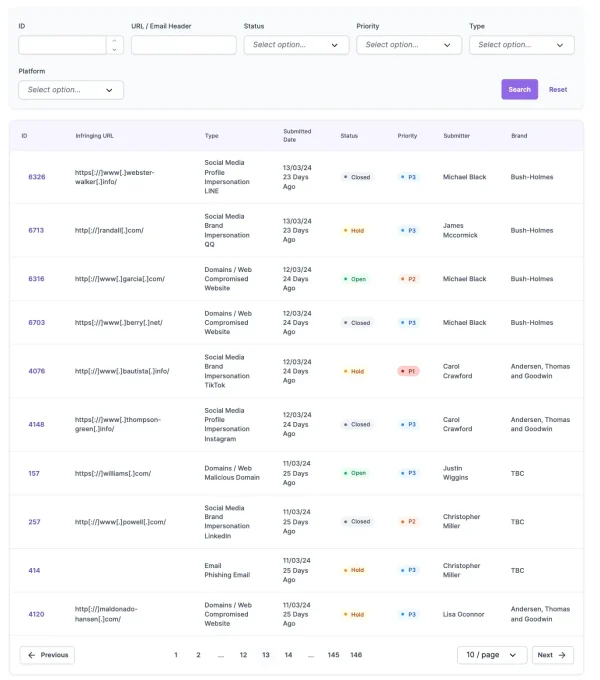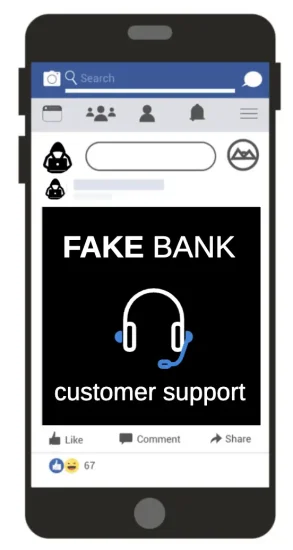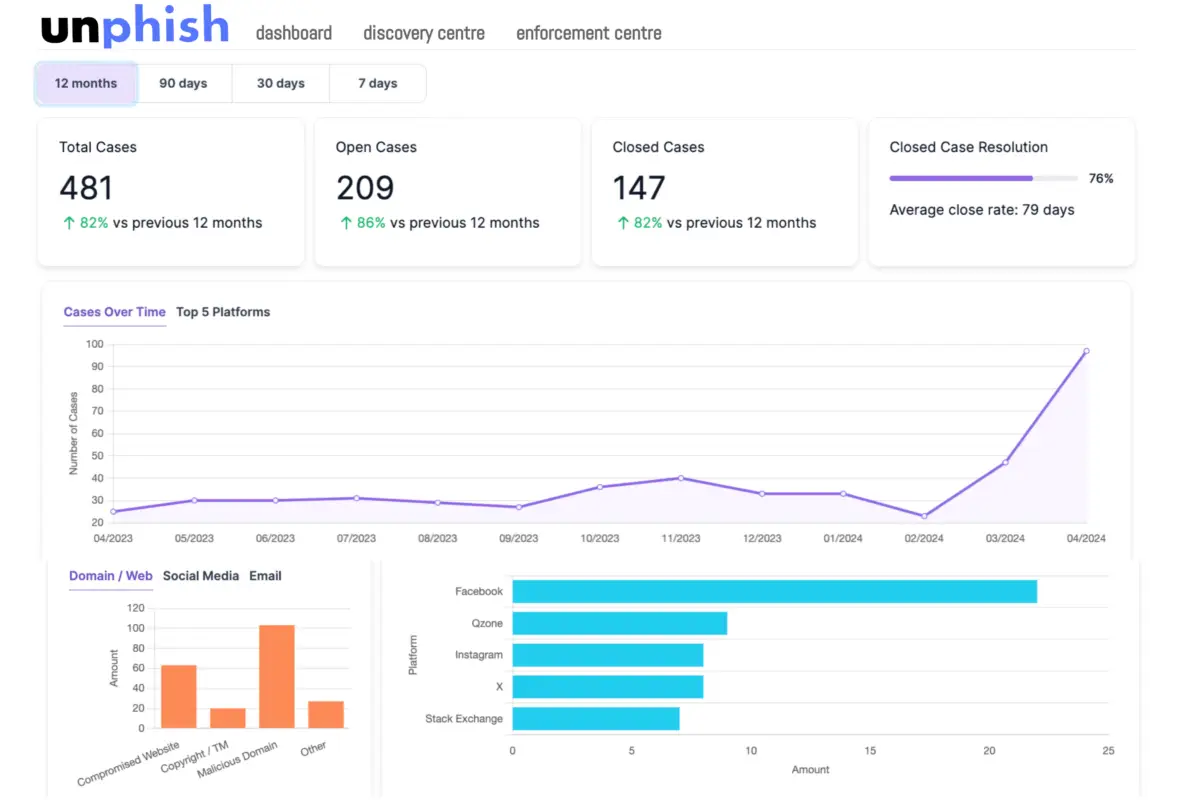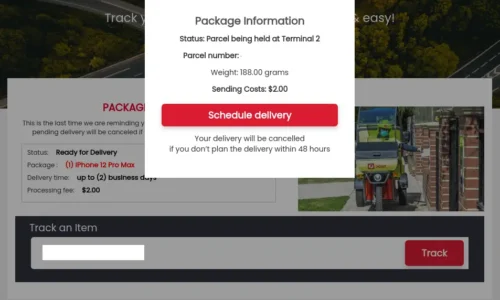How to Address Fake Facebook Profiles
Fake Facebook profiles are a growing menace. These fake accounts are used for various scams, targeting both individuals and brands. In this blog, we’ll explore the different types of scams perpetrated by fake Facebook profiles and provide practical tips on how to address and mitigate these threats.
Fake profiles can impersonate staff members, customer support representatives, and even entire brands. They are often used to propagate scams such as phishing attacks, crypto frauds, and romance schemes. The consequences of falling victim to these scams can be severe, ranging from financial loss to identity theft. For businesses, the damage extends to their reputation, eroding customer trust and loyalty.
Types of Fake Facebook Profiles
1. Fake Employee Profiles on Facebook
Staff Impersonation Fake profiles often impersonate staff members of a company. These accounts can mislead customers by providing false information or malicious links. For example, a fake profile of a customer service representative might ask for personal information or payment details, leading to identity theft or financial loss.

Unusual Requests: Fake profiles may ask for sensitive information, such as passwords or payment details, which legitimate staff would never request.

Communication Style: The language and tone might differ from official communication, often lacking professionalism or using poor grammar.

Profile Details: Incomplete or vague profile information, such as missing job titles, incorrect company name, or generic profile pictures.


2. Fake Customer Support on Facebook
Similar to staff impersonation, customer support impersonation involves creating fake profiles that pose as official support channels. These scams can deceive users into sharing sensitive information under the guise of resolving a technical issue.

Urgency & Threats: Fake support profiles often create a sense of urgency or threat, pressuring users to act quickly to avoid problems

Odd Communication Methods Requests to contact support through unofficial channels, such as personal emails or phone numbers, rather than official support lines.

Suspicious Links Providing links that lead to non-secure or unusual websites, which may not be related to the official company domain.
3. Fake Company Accounts on Facebook
Fake company FB accounts can impersonate well-known brands to promote counterfeit products or services. This can damage a brand’s reputation and erode customer trust. These scams often use subtle variations of the brand’s name to create convincing fake profiles.

Slight Variation in Names Fake profiles use slight variations of the brand’s name, such as misspellings or additional characters, to create convincing imitations.

Promotional Scams: Offering deals or promotions that seem too good to be true, often requiring upfront payments or sharing personal details.

Low Quality Content: Posts and messages may have low-quality images, unprofessional graphics, or content that doesn’t match the brand’s typical style and tone.


4. Fake Profiles on Facebook
Fake profiles often engage in phishing, where they trick users into clicking on malicious links. These links can lead to fake websites designed to steal login credentials, personal information, or install malware on the victim’s device.

Unfamiliar Links: Links that direct users to unfamiliar or misspelled websites, often mimicking legitimate sites to steal information.

Urgent Messages Messages that create a sense of urgency, such as account warnings or security alerts, prompting immediate action

Request for Personal Information Asking for login credentials, social security numbers, or other personal information through messages or forms on fake websites.
5. Crypto Scams on Facebook
The rise of cryptocurrency has brought with it a wave of fake profiles promoting fraudulent schemes. These scams often promise high returns on investments and use fake profiles to build credibility. Victims are lured into transferring cryptocurrency to the scammers, resulting in significant financial losses.

Promises of High Returns: Unrealistic promises of high returns on cryptocurrency investments, often with guarantees that seem too good to be true.

Fake Celebrity Endorsements: Claims of endorsements from well-known cryptocurrency influencers or celebrities, which are often fabricated.

Payment Demands: Requests for payment in cryptocurrency to personal wallets rather than through verified, official platforms.

How to Detect and Takedown Fake Facebook Profiles
1. Monitor for Fake FB Profiles
Keeping an eye out for fake profiles is crucial in safeguarding your brand and customers. Unphish, our advanced brand protection tool, offers a comprehensive solution for monitoring and identifying fake profiles. Here’s how Unphish can help:

Automated Monitoring: Unphish continuously scans social media platforms for profiles using your brand name or variations of it. This automated process ensures real-time detection of potential fake accounts.

Smart Alerts: Set up customized alerts with Unphish to get immediate notifications when suspicious profiles are detected. This allows you to respond quickly and efficiently to potential threats.

Detailed Reports: Unphish provides detailed reports on detected fake profiles, including information on their activity and potential impact. This helps you make informed decisions about further action.


2. Review your FB Page for Phishing Comments

Daily Review: Make it a routine to review comments on your posts daily. Look for comments that include suspicious links or ask for personal information.

Phishing Comments on your official Facebook pages can be a significant threat. Here’s how to stay on top of them:

Filter and Block: Use Facebook’s comment filtering tools to automatically hide comments with certain keywords or links. This can help reduce the visibility of phishing attempts.

Educate your Team Train your social media team to recognize phishing attempts and respond appropriately. Quick identification and action can prevent scams from spreading.
3. Report and Enforce Fake Facebook Profiles
Reporting and enforcing actions against fake profiles are critical steps in protecting your brand. Users can report fake facebook profiles direct to Facebook, or use enforcement tools like Unphish that streamlines this process, making it more efficient and effective:

Integrated Reporting: Use Unphish’s integrated reporting tools to report fake profiles directly to social media platforms. The tool provides pre-filled forms and templates to expedite the process.

Efficient Takedown Requests: Unphish automates the submission of takedown requests to social media platforms, ensuring swift action against fake profiles. This reduces the manual effort required and speeds up the enforcement process.

Enforcement Support: Unphish offer support and guidance on taking further action against persistent offenders. Collaborate with our team to understand your options and take appropriate steps.


Remove Fake FB Profiles Quickly and Effortlessly with Unphish
Learn how Unphish can detect and quickly remove fake facebook profiles, accounts and malicous content
About brandsec
brandsec is a team of highly experienced domain name management and online brand protection experts. We provide corporate domain name management and brand enforcement services, helping brands eliminate phishing platforms across the internet. Supporting some of the largest brands in the region, we offer innovative solutions to combat threats across multiple industries.

Edward Seaford
Product & Enforcement Director
Ed brings over two decades of experience in domain management, brand protection, and phishing defence. At Brandsec and Unphish, he drives the technology and partnerships while leading with a people-first approach.



